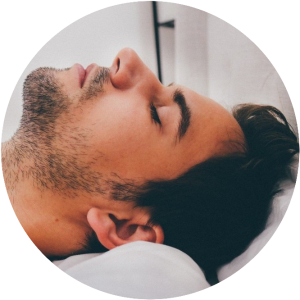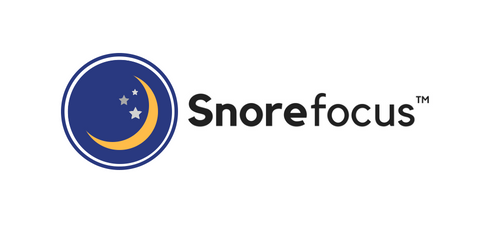What is Sleep Apnoea and is it Dangerous?
We all have that one friend or family member, who was invited over and welcomed to spend the night only for everyone including the neighbour’s cat to become disrupted because of their incessant snoring, that rumbled on for what seemed like the entire night. Snoring is a situation that most people treat like a joke but it’s really a serious issue for many people.

In some cases, snoring can be so loud that other people in different parts of a house fail to get any sleep, or their sleep will in many instances be effected in an adverse way by the snorer. Recent research has shown that excessive snoring is a sleep related problem referred to as Sleep Apnoea. This disorder is mainly common in the United States of America.
The essence of this article will therefore be to discuss what is sleep apnoea, how does it result and what are the possible dangers one may be likely to suffer from, in case you are affected by the condition.
Sleep Apnoea – Definition
Sleep apnoea is a serious sleep related disease that occurs due to interrupted breathing during sleep. It is usually caused by various different factors. A patient afflicted with sleep apnoea stops breathing while they are sleeping which can be any number of times during a night. In turn, these stops in breathing basically mean most of the cells in the body including the brain are lacking enough oxygen supply. In the morning, the person with sleep apnoea will end up waking in a tired and less productive state and feel like as if enough sleep wasn’t obtained during the night.
Types of Sleep Apnoea
The OSA (Obstructive Sleep Apnoea); this is a popular version of excessive snoring. It is caused by the blockage of the main airway in the throat, which is often caused by the collapse of the soft tissue at the backside of the larynx during periods of sleep, when the body is in a state of relaxation and the person is usually lying on their back.
CSA (Central Sleep Apnoea); this is a type of disease that happens if the brain is not able to send impulses to the breathing system. However, most patients experiencing CSA rarely snore.
Complex Sleep Apnea; this is when the patient is afflicted by OSA and the CSA at the same time.
Signs of Sleep Apnoea
Sometimes it is quite difficult to know if a patient has either OSA or CSA through signs because they both have the same effects on people. Here are a few signs that doctors always look for;
- Excessive snoring which is more persistent in patients suffering from OSA
- Continuous stops in breathing which is usually noticeable by a third party
- Sudden awakening which comes hand in hand with strenuous breathing and is common in CSA
- Sore throats at dawn when the person wakes up
- Serious headache when you wake up
- Insomnia – Unable to get any sleep
- The patient suffers from hyper-insomnia (excessive daytime sleep)
- The patient is prone to suffer from attention problems
Now we have an idea as to the obvious signs of someone with sleep apnoea lets go on and have a look at the reasons it exists for some people.
Causes of Sleep Apnoea
Each type of sleep apnoea has a few different causes which can include the following;
Causes of OSA
OSA occurs when there is muscle relaxation at the backside of your larynx. These muscles are known to provide support to the cushy palate of the mouth. In turn the airway is blocked leading to reduced oxygen supply in the body.
In response to the low oxygen level, your brain wakes you up so that you can restore the airway and enough air can pass through. In most cases, these waking spans are usually so short that most people don’t remember ever even waking up.
In turn, the patient ends up making a snorting or chocking sound trying to open up their airway. The blocked airway results in your brain constantly trying to wake you up all night (up to thirty or so times in one night). You end up not having the desired rest your body requires and as a result wake up in the morning feeling tired. Most people suffering from OSA do not remember if they woke up during the night and in fact they think they had a sound sleep.
Individuals likely to suffer from OSA include;
- Male individuals who are overweight
- Individuals over the age of 50 with problems of a higher BP (blood pressure) than normal
- Smokers
- Individuals with a neck circumference of 40cm and above
- Allergic reactions that may cause nasal blockages
- Individuals with an enlarged tonsil
Lets take a look now at the other main form of sleep apnoea and how this may be caused in some people.
Causes of Central Sleep Apnoea
CSA is quite rare. CSA is a result of your central nervous system failing to send impulses to your respiratory system. In turn, this causes shortage in breathing hence your body experiences reduced oxygen levels. Just like in OSA, the patient’s brain tries to fix this problem by waking the patient throughout the night. In most cases, the patient has difficulty in sleeping or just staying asleep.
CSA is closely related to other health problems such as neurological disease, spine or brain injury, stroke or other heart diseases. There have been reports of patients suffering from OSA developing CSA.
Is Sleep Apnoea Dangerous?
Over the years, research has shown that sleep apnoea will affect men more than women. Though it can affect people of all ages, most individuals affected are usually between the ages of 55 to 60 years. Less than 1% of the general population experience CSA.
Sleep apnoea poses a few health problems that you should be aware of namely;
- Fatigue; since you have to wake up several times at night, your body doesn’t get the chance to rest (even if you can’t remember waking up). In the end, you will experience drowsiness, fatigue and irritability during your working hours which may affect your overall productivity and can lead to irritability.
- Heart related diseases; the low oxygen supply in your blood causes your cardiovascular system to strain more than usual to cater for the reduction. This exposes you to chances of heart failures such as heart attack and other problems. If you happen to be affected by OSA, you are more likely to be suffering from HPB (high blood pressure) than someone who doesn’t have this problem. In severe cases, if you have a record of some heart problems, and by bad luck you also suffer from OSA, then the sudden change in oxygen supply may be a fatal combination.
- Diabetes; Individuals afflicted with sleep apnoea are more exposed to developing diabetes type 2 and insulin resistance than someone who is not affected with this problem
- Liver problems; Non-alcoholic fatty liver disease is when there is scaring on your liver due to abnormality in its functions. Sleep apnoea patients are likely to suffer from this disease more than the rest of the population
- Sleep-deprived partners; the excessive snoring and regular waking up without actually waking up will cause sleep interruptions in your partner who is obviously concerned about your well-being. Most partners choose to go to the next room or even sleep on the couch if your snoring becomes too much. In the end, they are affected with problems like fatigue, drowsiness and irritability.
With the above description, you now understand why sleep apnoea may be a really dangerous problem that shouldn’t be ignored. Make an appointment with your doctor or take your partner to seek medical attention if you feel they may be suffering from the conditions outlined above. Click Here to read more about how much sleep you should really get every night it may surprise you!
